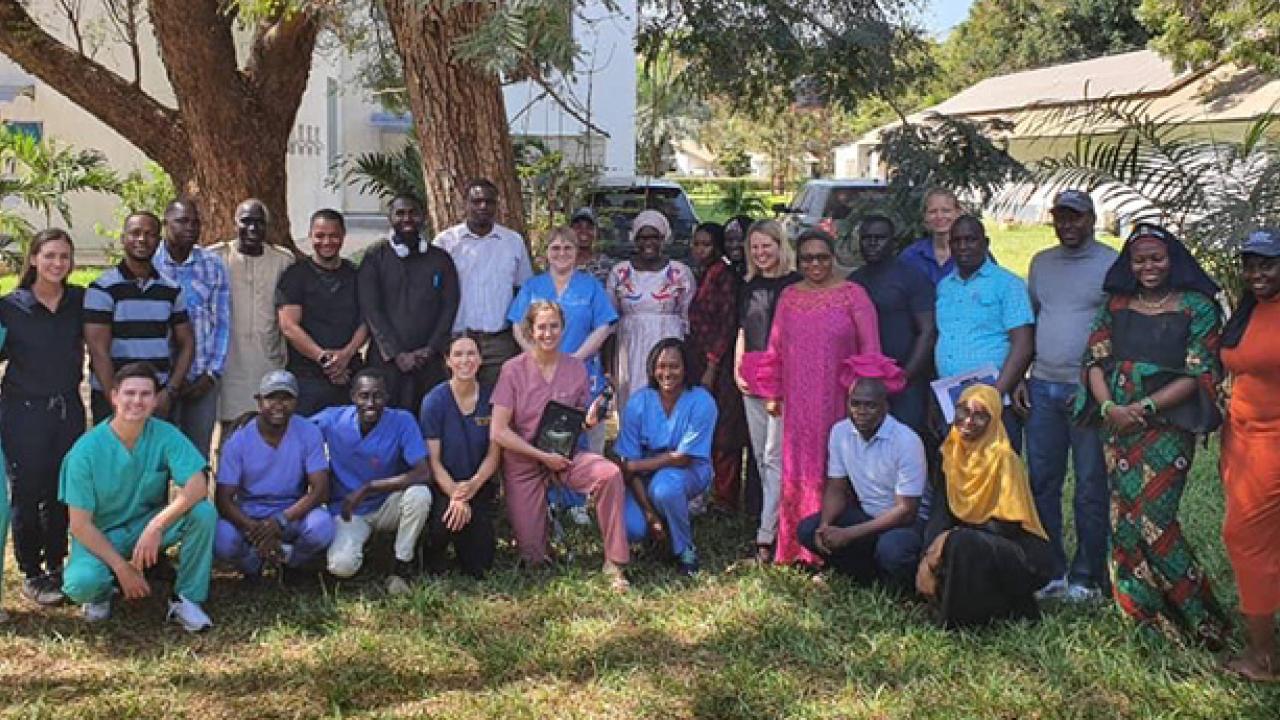
Emergency Medicine Team Trains Health Care Professionals in West Africa
Teaching providers to use portable ultrasound aims to address health disparities in The Gambia
A team from the UC Davis Health Department of Emergency Medicine is training providers in The Gambia to deliver health care using portable ultrasound equipment.
The crucial initiative aims to enhance the diagnostic capabilities of medical professionals in The Gambia and improve access to care. The training program focuses on diagnosing heart and lung conditions.
The UC Davis team is training the providers to use Point of Care Ultrasound (POCUS), a convenient diagnostic tool that is increasingly being employed in hard-to-reach communities because of its portability.
POCUS can assess patients wherever they are located. It is a vital tool in remote settings because it enables the diagnosis and treatment of critically ill patients without having to be in a clinic or hospital.
“The Gambia is a perfect environment for portable ultrasounds to make a real difference in patient care and to save lives,” said Christine McBeth, assistant professor of Emergency Medicine at UC Davis Health and course director of the training program. “These reliable tools provide real-time information on how to best treat patients and allow us to monitor a patient’s response to their treatment.”
During their recent trip to The Gambia, McBeth and her team provided a week of classroom training with interactive team-based learning activities. The training was funded by the Department of Emergency Medicine, the London School of Hygiene and Tropical Medicine and the Sustainable Cardiovascular Health Equity Development Alliance (SCHEDA) and Medical Research Council Unit. SCHEDA donated four handheld ultrasound probes along with iPads.
The following week, the group from UC Davis led the local providers in hands-on simulations with real-life patient scenarios.
“The goal of the training program was to teach these local health care professionals how to use the POCUS tools so they can provide care to acutely ill patients with respiratory and cardiac conditions after we leave,” McBeth added.
Read the full article from the UC Davis School of Medicine website